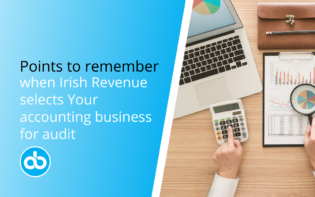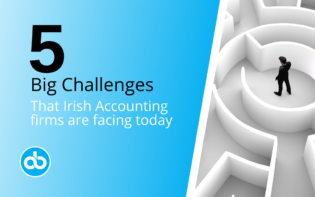
Bookkeeping is essential for any business for financial success. However, handling bookkeeping is time-consuming; companies must have effective bookkeeping practices. Hiring a competent bookkeeper can help you avoid cash flow challenges, paving the way to expand your business.
Whether your company is a startup or well-established, effective bookkeeping is the backbone for its success. Outsourcing your bookkeeping needs to experts in Ireland is an excellent way to ensure your company’s finances are well-managed.
Thinking of doing it yourself or hiring a professional, you must grasp some of the best bookkeeping practices to monitor your bottom line. Let’s get started to learn more about effective bookkeeping practices for businesses in Ireland!
Table of Contents
ToggleWhat is Bookkeeping?
“Bookkeeping” refers to the everyday practice of entering your business’s financial transactions into structured accounts. You can get reliable financial reports that show how well your company is doing when you keep track of all your transactions. Keeping meticulous records can also be helpful during a tax audit.
Effective bookkeeping offers:
- Access to comprehensive records of all transactions.
- Allows you to make well-informed choices.
- Tax preparation made easy.
What are the Components of Bookkeeping?
- Keeping track of all financial transactions.
- Handling accounts payable & receivable.
- Preparing financial statements.
- Balancing a general ledger.
- Processing payroll.

Effective Bookkeeping Practices for Businesses
Keep Your Finances Separate
Keep your company and personal finances separate to avoid issues with cash flow. There is a significant risk of financial confusion when you handle all the transactions alone. So, keeping the two accounts separate could be a good idea even if you are the only one dealing with the money. Have separate bank accounts & credit cards to understand your company’s financial conditions clearly.
Choosing an Accounting Approach
Your business can follow either cash-based or accrual accounting. In addition, cash accounting usually belongs to companies that solely deal in cash transactions.
Revenues and costs are recorded when they are incurred using the matching principle in the accrual approach, regardless of when payments are paid or received. So, the accrual method is usually the way to go for any business that has to invoice its clients, even if it’s not always the easiest.
Alternatively, you can use a modified cash basis, a hybrid of the two options. If you run your business entirely on cash, you start creating accounts receivable when sending out invoices to clients and record the payments in accounts payable. Before making any transactions, you must determine which method will work best for your business.
Keep Tabs on Your Finances
The big picture of your company’s financial activities is essential to you as a business owner. Based on previous data, you should classify your income and expenditure sources to find areas of strength or improvement.
Therefore, looking at these advances regularly from a bird’s eye perspective is a good idea. You can easily track continuing expenditures with robust accounting software solutions. To further assist you in keeping track of your transactions, you could find helpful software.
You can get more time to expand your business with these software advancements that can automate your regular income and expenditures.
Pick the Right Accounting Software for Maximum Efficiency
You should keep meticulous records of all your company expenses. This necessitates maintaining a record of receipts weekly, if not daily, basis. A trusted accounting software system will significantly save you time.
Do not limit your accounting software selection based only on how well it meets your current bookkeeping needs. Considering how well each technological breakthrough can adapt to your changing business needs is essential.
Efficient Tracking of Accounts Payables and Receivables
Since it is vital to your company’s financial well-being, monitoring accounts payable and receivable is at the top of best bookkeeping practices. Maintaining your AP/AR will allow you to maximise your available funds.
If you want to avoid late fines along with the potential of early payment incentives, accounts payable monitoring is a must. It will ensure you pay your creditors accurately and on time. Better management of invoices is another benefit of keeping an eye on accounts receivable, which will allow you to get payment more quickly.
Monitor Your Bank Statements Regularly
You should balance your bank statements regularly, check your transactions daily, and address any issues you find immediately. If your bank statement is in harmony with your books, your cash is also in sync.
If they are not compatible, it’s clear that something is wrong and requires fixing right away. By carefully reviewing your bank records regularly, you can help identify fraud, monitor your cash flow, and manage your accounts receivable.
Define the Roles of Internal Control
There is a high risk of fraud in bookkeeping. Therefore, internal controls should be implemented to reduce the possibility of fraud. There are three primary areas of responsibility for handling money, as is common practice in bookkeeping.
Make sure that no single employee can have access to assets, records, and authorisation all at the same time. So, you can have one employee handle the check drafting, another handle the bank account verification, and a third handle the payment processing. Outsourcing is an excellent option for a small business to keep its accounting system efficient.
“Studies show that 37% of small businesses outsource accounting.”
Strategic Tax Planning
To have all your paperwork in order when it is time to file, it’s essential to communicate closely with your tax accountants. In addition to reducing your total tax burden and avoiding expensive penalties, keeping your taxes organised will enable you to make wise choices throughout the year.
Ensure Your Records are Complete
When it comes to compliance, are you ready for an audit? It is impossible to start another calendar year without maintaining all of your prior records, this includes tax returns.
The Internal Revenue Service has set standards for when businesses must retain certain documents (including operating records, payroll data, and expenditure receipts). A general guideline is seven years; however, exact requirements could differ.
Reliable Bookkeeping Services: Choose Outbooks
Establishing robust bookkeeping practices enables businesses to maintain their financial stability. Making educated judgements about your company’s future will be hard if your books are inaccurate. Your company can stay competitive by establishing a reliable system for bookkeeping.
You can remain on track if you endeavour to maintain proper bookkeeping practices. Choose Outbooks for all your bookkeeping needs. Outsource to our experts for tailored solutions that fit your unique needs.
Get in touch with Outbooks for tailored bookkeeping services at info@outbooks.com or +44 330 057 8597 today!
Outbooks Pricing Calculator where precision meets profitability.







